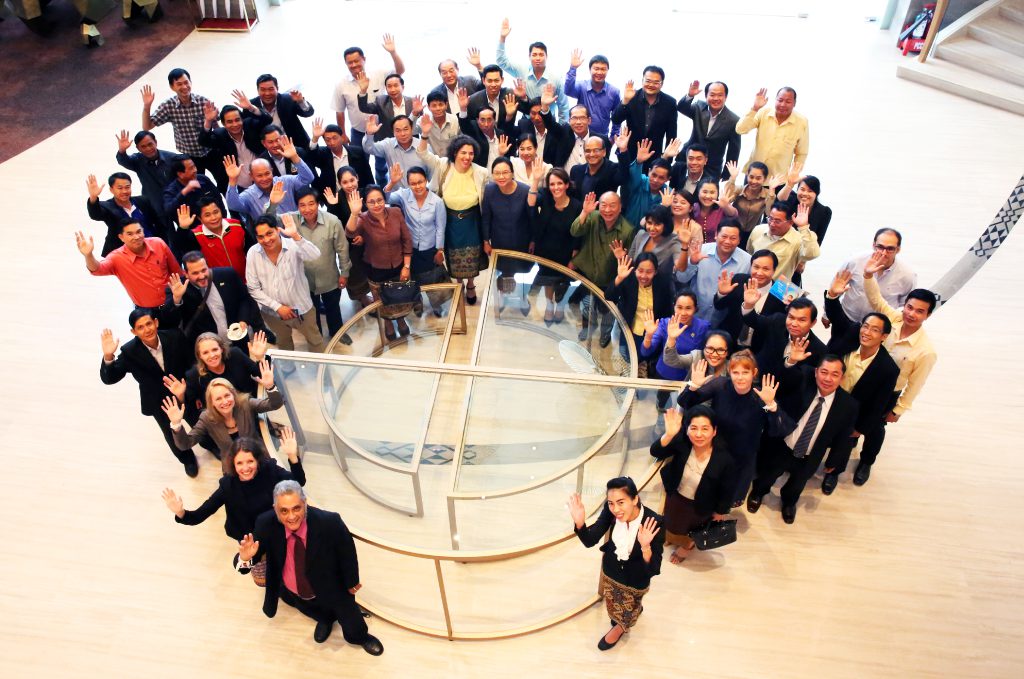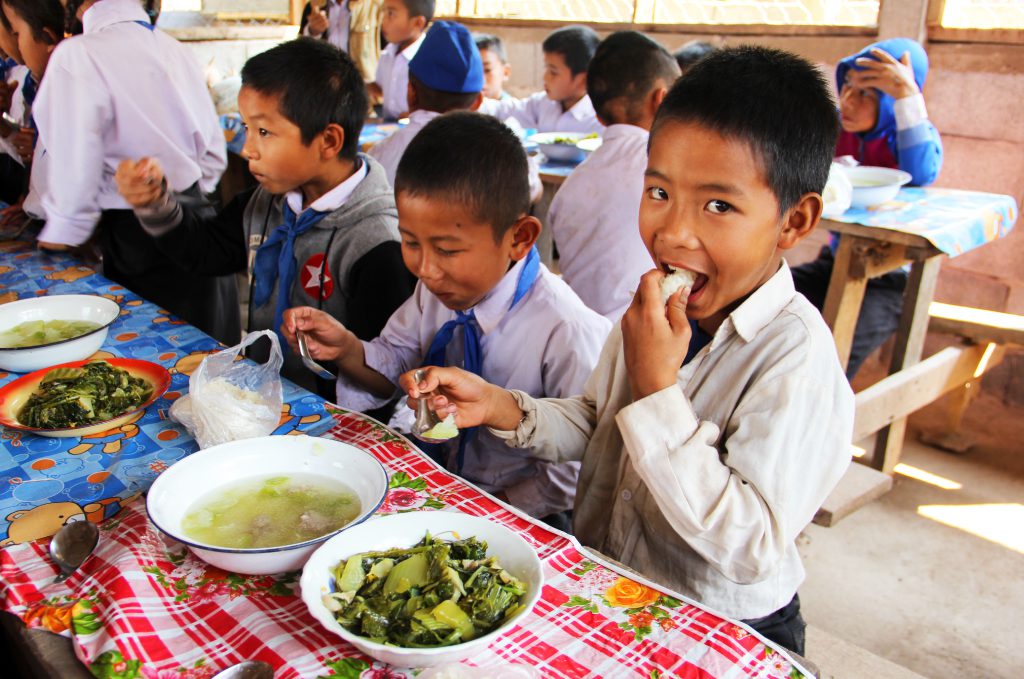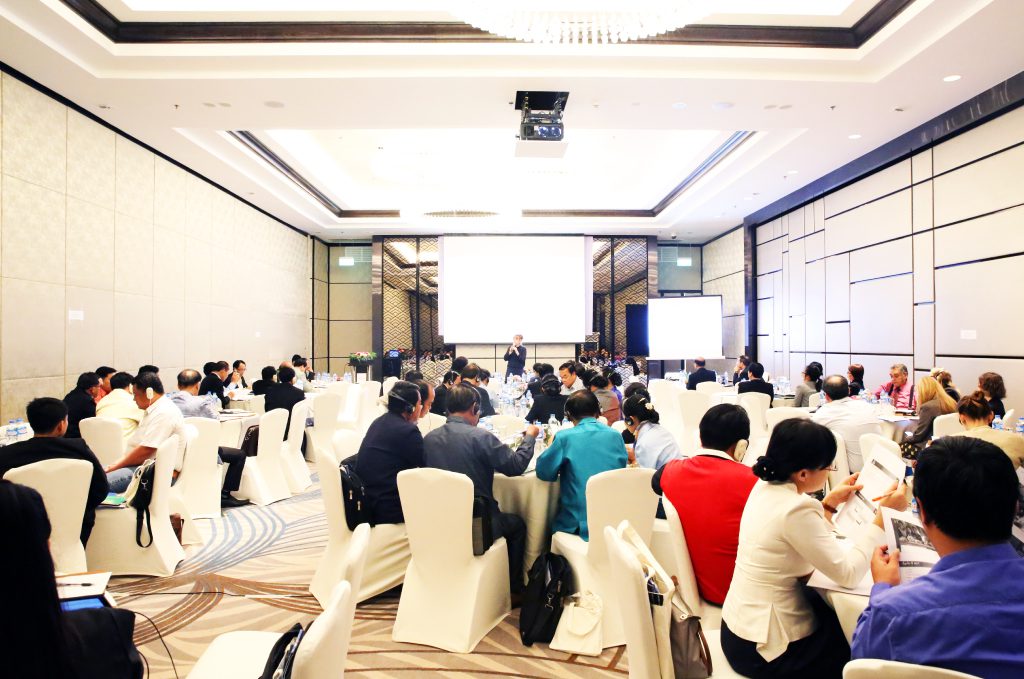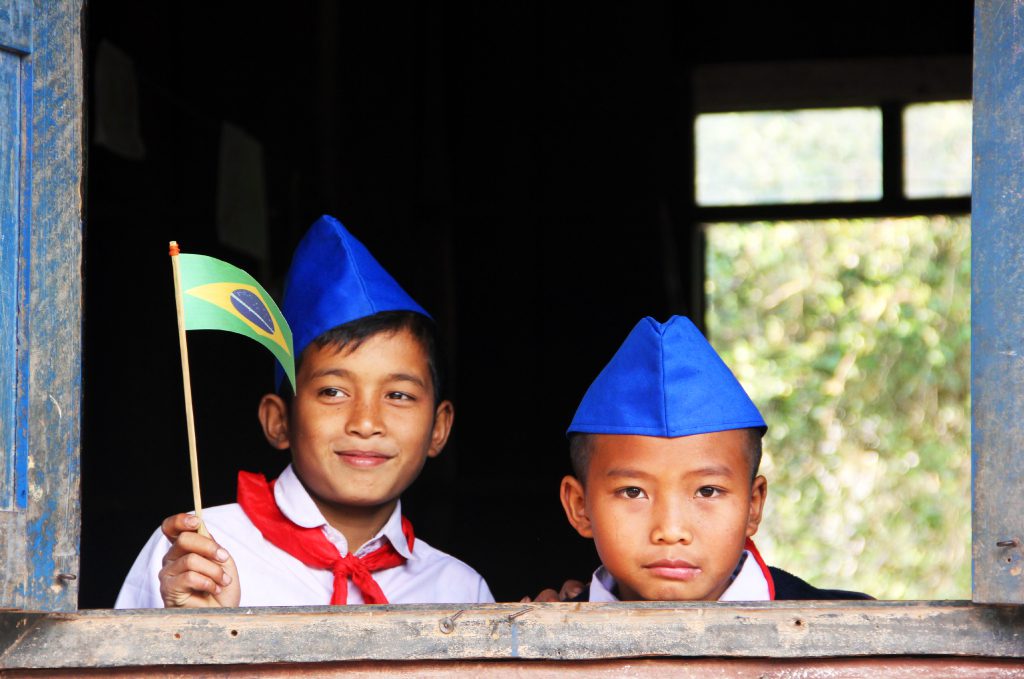
A Brazilian delegation went on a mission to Lao PDR from 19 to 23 February to exchange knowledge and information on different approaches to Zero Hunger with the national and provincial governments and to discuss the terms of the cooperation between the two countries and the WFP Centre of Excellence against Hunger. The focus of the mission was to contribute to the country’s efforts to improve its school feeding programme.
During the mission, two different events gathered representatives of Lao PDR national government and provincial governments. The goal was to commit high-level decision-makers and technical staff to improving and investing in the school feeding initiative. The World Food Programme country office and the government agreed upon a plan to handover the school feeding programme to the government in phases, until 2021. The Brazilian visit was strategic in contributing to the government planning of this process in a way that ensures the programme’s sustainability.

Cooperation
The two events were a workshop in the Udomxay province and a national high-level meeting in Lao PDR capital, Vientiane. The events served to raise awareness on the importance of developing food systems, improving agricultural techniques and food processing, increasing local production, and taking advantage of South-South cooperation arrangements to link Lao to international and regional development agendas.
The Brazilian delegation participated in both events to share global, regional and local school feeding experiences. Representatives of provinces from all over the country presented the main features and challenges of school feeding in Laos PDR. The participation of high-level officials and representatives of the provinces in the discussions about school feeding was an achievement, and it allowed those stakeholders to widen their understanding on the Brazilian school feeding experience, especially regarding nutrition and food purchase from smallholder farmers.
Among the many aspects of the Brazilian school feeding programme discussed during the mission, these received special interest by LAO officials:
- funding sources
- role of nutritionists in supporting menu planning and nutrition education
- mechanisms to coordinate the different ministries involved
- impacts in smallholder farming, including income generation
- participation of states and municipalities.
The Brazilian delegation was composed by representatives of the WFP Centre of Excellence against Hunger, the Brazilian Cooperation Agency (ABC), the Brazilian National Fund for the Development of Education (FNDE) and the Technical Assistance and Rural Extension Company (EMATER/DF).

School feeding in Lao PDR
The workshop in Udomxay happened on 19-21 February, with around 70 people in attendance. Representatives of 11 provinces shared with participants and with the Brazilian delegation the practical experiences of school meals in Lao. During the event, participants discussed different approaches to school feeding and made an exercise to draw lessons from the experiences in place in Lao.
A delegation from Lao made a study visit to Brazil with the WFP Centre of Excellence in 2014. Since then, the country approved a school feeding policy, and the World Food Programme country office has been working with the government and other partners to implement the policy. Access to clean water and hygiene initiatives have been some of the priorities.
The joint efforts also address nutritional balance of the meals provided to the students, by using vegetables grown by the communities. Inspired by the visit to Brazil in 2014, a pilot project has been offering technical assistance to smallholder farmers that supply food to the schools was set up in 2017.
The event included a field trip to three schools in the districts of La, Beng, and Namor, for the Brazilian delegation to see first-hand the implementation of school feeding in Lao. The workshop was also an opportunity for the World Food Programme country office to present the 18-month plan to handover the school feeding programme to the government. In 2019, WFP will handover 500 schools (30 percent of the supported schools) to the Government and Communities, and in 2021, the remaining 950 WFP-assisted schools. Participants discussed priorities and needs that may require support from the WFP Centre of Excellence and Brazil and the next steps.

High-level meeting
The meeting in Vientiane, chaired by the minister of Education and Sports, co-chaired by Leticia Lopes from ABC and the WFP Country director and representative Sarah Gordon-Gibson, included the participation of around 100 people, representing several ministries, provinces, government organizations, private sector, development partners, and UN agencies. The event had the goal of exposing Lao central and provincial governments to the Brazilian food and nutrition security model, including the unified registration system for social protection, the school feeding legislation, and initiatives to boost smallholder farming.
This meeting was key to engage high-level government officials, both from the central government and from the provinces, into taking ownership for the school feeding programme. The WFP country office and from the WFP Centre of Excellence will support the handover process.
The government presented the School Meals Roadmap, which sets the country’s initiatives in school feeding from 2018 to 2021. Brazil and Lao PDR also discussed the terms of the technical cooperation with the WFP Centre of Excellence.
The events in Lao PDR were organized by the government in partnership with the World Food Programme country office.




